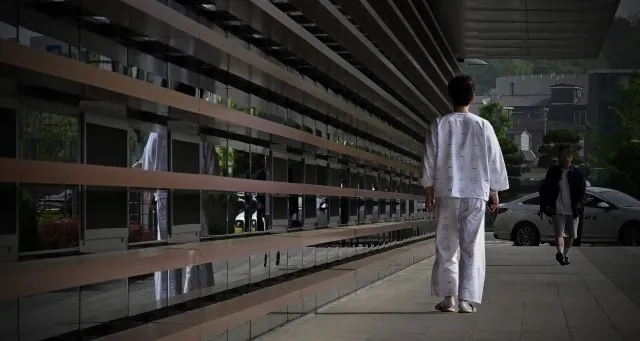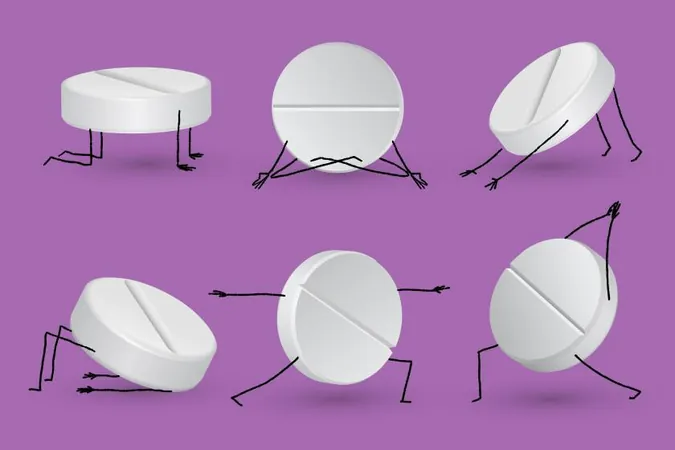
The Unexpected Rise of Cancer Among Young Adults: A Wake-Up Call for Awareness
2024-11-27
Author: Rajesh
Date: November 27, 2024
SEOUL – Cancer is often perceived as a disease that primarily affects the elderly, but the shocking reality is that many young adults are now facing their own battles against this illness. Kang Min-ji, a vibrant YouTuber in her early 30s, found herself confronting this harsh truth when she was diagnosed with thyroid cancer and a brain tumor in July 2022—an ordeal she candidly shared in her video titled "Who would have thought I would have cancer?"
"I never expected to have cancer," she reflected, noting her active lifestyle, non-smoking habits, and minimal alcohol consumption. "But sleepless nights due to work took a toll on my health."
Kang’s experience has become emblematic of a disturbing trend in South Korea. Data from the Health Insurance Review and Assessment Service reveals a significant rise in cancer diagnoses in individuals in their 20s and 30s, with rectal cancer leading the alarming statistics. For instance, the number of young men diagnosed with rectal cancer doubled from 100 to 207 between 2016 and 2021, while women in the same age range saw a staggering 142% increase.
This surge in cancer cases among young adults has been echoed by other public figures, such as actor Kim Woo-bin, who faced a challenging battle with nasopharyngeal cancer at just 28 years of age, and fellow actor Jang Keun-suk, who recently opened up about his year-long struggle with thyroid cancer.
Why Are Young Adults Being Diagnosed?
Experts attribute this rising trend to a combination of factors, including high stress levels, the prevalence of one-person households, and a shift towards unhealthy eating habits. As urban life accelerates, many young people are opting for convenience foods—processed meals and fast foods—over home-cooked balanced diets that could help reduce cancer risks.
Professor Shin Hyun-Young from Seoul St. Mary’s Hospital highlights, “Young adults gravitate toward ready-to-eat items, neglecting the importance of meals filled with vegetables that can fight cancer. The lack of time to cook while juggling work is part of the problem.”
Indeed, data reveals that single-person households in Korea have soared to over 10 million—41.8% of all households—which may contribute to less healthy eating and more stress as these individuals navigate work and life alone.
The Stress Factor
Stress is another underlying cause identified by healthcare professionals. Research suggests that high stress can alter cellular processes, potentially leading to cancerous changes. The phenomenon is exacerbated in a competitive environment where young adults face relentless pressure to excel academically and professionally.
“The constant stress and poor sleeping patterns can trigger unhealthy eating habits as a form of self-reward,” Professor Shim Kyung-won commented. This reaction often leads to a vicious cycle—leading to further stress and an unhealthy lifestyle.
Call for Preventative Measures
In response to these alarming statistics, several healthcare professionals advocate for more accessible cancer screenings for young adults. Park Kui-seon of Cha Ilsan Medical Center recommends screening tests for those exhibiting symptoms such as fatigue or unusual temperature sensitivity, as these could be signs of thyroid issues—an increasingly common concern among younger individuals.
Moreover, the Korean Cancer Association has taken proactive steps by launching a program aimed at supporting young cancer patients in their 20s and 30s, helping cover their medical expenses so they can focus on recovery.
Nonetheless, experts urge caution. While screenings are crucial, overdiagnosis remains a concern. A study conducted by the National Library of Medicine revealed that a significant majority of thyroid cancer diagnoses in South Korea between 1998 and 2012 may have been unnecessary, underscoring the vital need for appropriate diagnostic protocols.
Conclusion: A Generation’s Health in Jeopardy
The rising rates of cancer diagnoses in younger populations should serve as a wake-up call for all, urging a reevaluation of lifestyle choices, dietary habits, and the importance of mental health. As awareness grows, it is imperative that young adults prioritize a balanced lifestyle alongside timely medical screenings, paving the way for healthier futures.
With the battle against cancer no longer confined to older generations, heightened vigilance and proactive choices are essential in safeguarding the health of today’s youth.

 Brasil (PT)
Brasil (PT)
 Canada (EN)
Canada (EN)
 Chile (ES)
Chile (ES)
 España (ES)
España (ES)
 France (FR)
France (FR)
 Hong Kong (EN)
Hong Kong (EN)
 Italia (IT)
Italia (IT)
 日本 (JA)
日本 (JA)
 Magyarország (HU)
Magyarország (HU)
 Norge (NO)
Norge (NO)
 Polska (PL)
Polska (PL)
 Schweiz (DE)
Schweiz (DE)
 Singapore (EN)
Singapore (EN)
 Sverige (SV)
Sverige (SV)
 Suomi (FI)
Suomi (FI)
 Türkiye (TR)
Türkiye (TR)